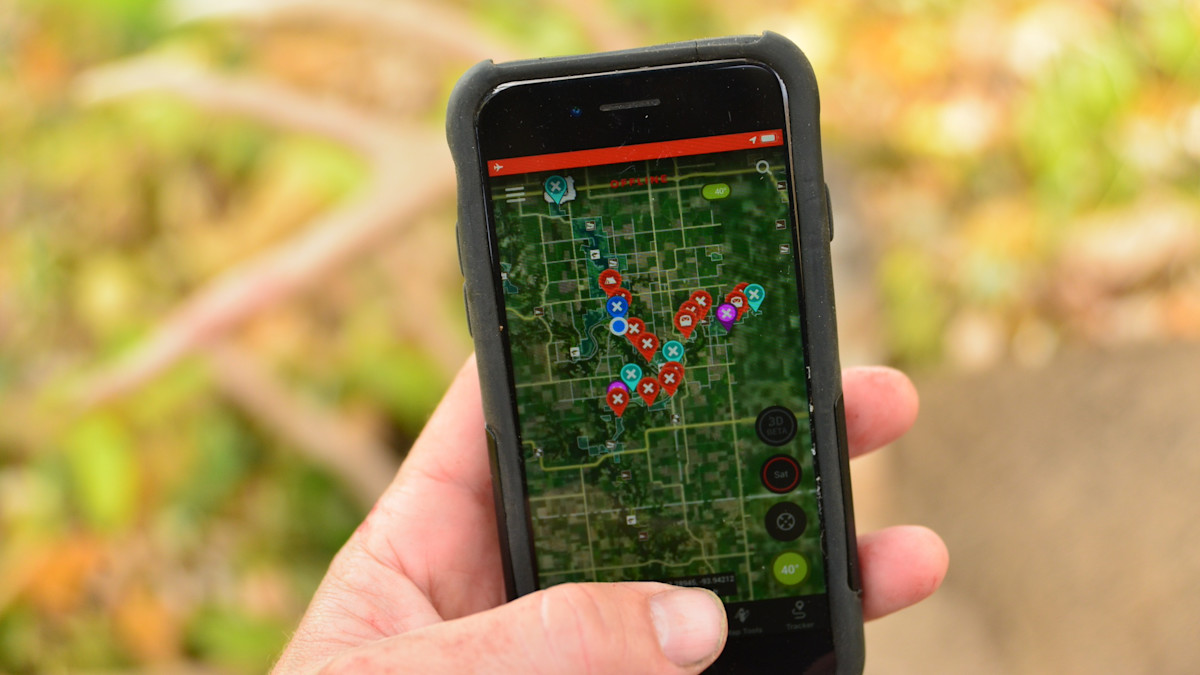
There’s a saying for folks who work in marketing that goes something like this: the minute you sign a new client is the minute you start to lose them. This general rule applies to hunting spots as well. The minute you get permission to hunt a property is the minute you start to lose that property.
Unless you’re the title holder to a piece of deer ground, the grip you hold on permission is tenuous at best. Farmers pass away, leaving their ground to kids who want nothing to do with that lifestyle. Developers come along with deep pockets and life-changing offers. Property taxes head north at a rate that doesn’t justify the ownership anymore. If any of these things happen, and you’re hunting on a handshake, you’re out.
Other things can happen to keep whitetail hunters from specific properties, as well. A family member might decide that naming bucks and keeping them for himself is more appealing than sharing ground with folks who might kill ‘his’ deer. Someone might come along and offer to lease a farm, or maybe a landowner finds one too many dead-but-unrecovered bucks in his cornfield and says enough is enough.
There are a lot of ways you can go from having a spot to hunt to not having a spot. Acknowledge this, and then do your best to mitigate it.
Concentrated Wealth
In the finance world, it is common to hear about folks who made a big bet 30 years ago on Apple or some other future performer, and now their portfolio is full of true, generational wealth. We love these stories because they convince us that it’s possible. What you rarely hear about are the people who put all of their money into Kodak, Enron, or most companies. Concentration with your money means risk.
The same applies to hunting ground. If you have one spot to hunt, you can’t afford to lose it. Now, I know you’re thinking that Grandma is going to leave the land to you or your dad when she dies. But counting on land being available long-term, especially when it’s going to change ownership hands, is a sucker’s bet.
Options are your friend. If you’re not on the hunt for a backup spot, get on it. Then get on the hunt for a backup to your backup. If you wait until the green light turns red, it’s too late. Of course, this might mean you have to accept that your opportunities and goals will have to change with your hunting ground options.
Scary Change
I recently had a conversation with an Iowa bowhunter who has access to two adjoining, unbelievable properties. He kills big deer every year. He’s also terrified he’s going to lose his access, and eventually, his kids won’t have a place to hunt. I mentioned that Iowa has something pretty good going on with their public land and their deer herd, but he couldn’t quite fathom it.
The thing is, you’re not entitled to the hunt you want. You get what you get, and instead of being terrified of change or having to work harder for a buck that you wouldn’t have previously shot, understand that it’s reality. When you lose a spot, you’re almost always going to have to work harder to scout, hunt, and fill those tags.
That’s not the bad thing we convince ourselves it is. While it’s not fun to lose a spot, it’s also easy to get stuck in a hunting rut. This happens a lot to people who have access to really good ground. Eventually, the challenge dissipates, and the hunting just doesn’t have the spark it used to. New ground can change all of that, even if it sounds like a major downgrade, which it might be. But it might also be the life raft that keeps you afloat in the deer world when someone closes the gate on your prime spot and leaves you on the outside looking in.
Don’t Take It For Granted
Aside from doing what you can to line up more hunting spots and accepting change as a way of life, keep yourself accountable. Don’t take your permission-based hunting for granted. It’s easy to believe you have a tight relationship with a farmer you’ve known since high school, so you neglect to make the call and re-up on your permission one year. Or you assume you can take a few buddies out to hunt with you when you have never been specifically green-lit to do that.
Something as simple and as seemingly innocent as calling a farmer during planting or harvesting season can get you on his bad side. Parking your truck too close to the road and blocking the neighbor’s combine or showing up to blood trail a buck at midnight without a courtesy heads-up hours earlier can get you booted.
Hold yourself accountable for your actions, and appreciate what you have. Getting hunting permission to private ground is a gift, and should be treated as such. One of the easiest ways to lose a spot and then have to hunt for something new is just simply taking the whole thing for granted.
For more information on whitetail hunting, check out these articles: Why You Might Want to Forget About Mature Bucks and Just Hunt, Why Are So Many Deer Hunters So Lazy?, and Why Some Deer Mean So Much To Us, And Others Just Don’t.



